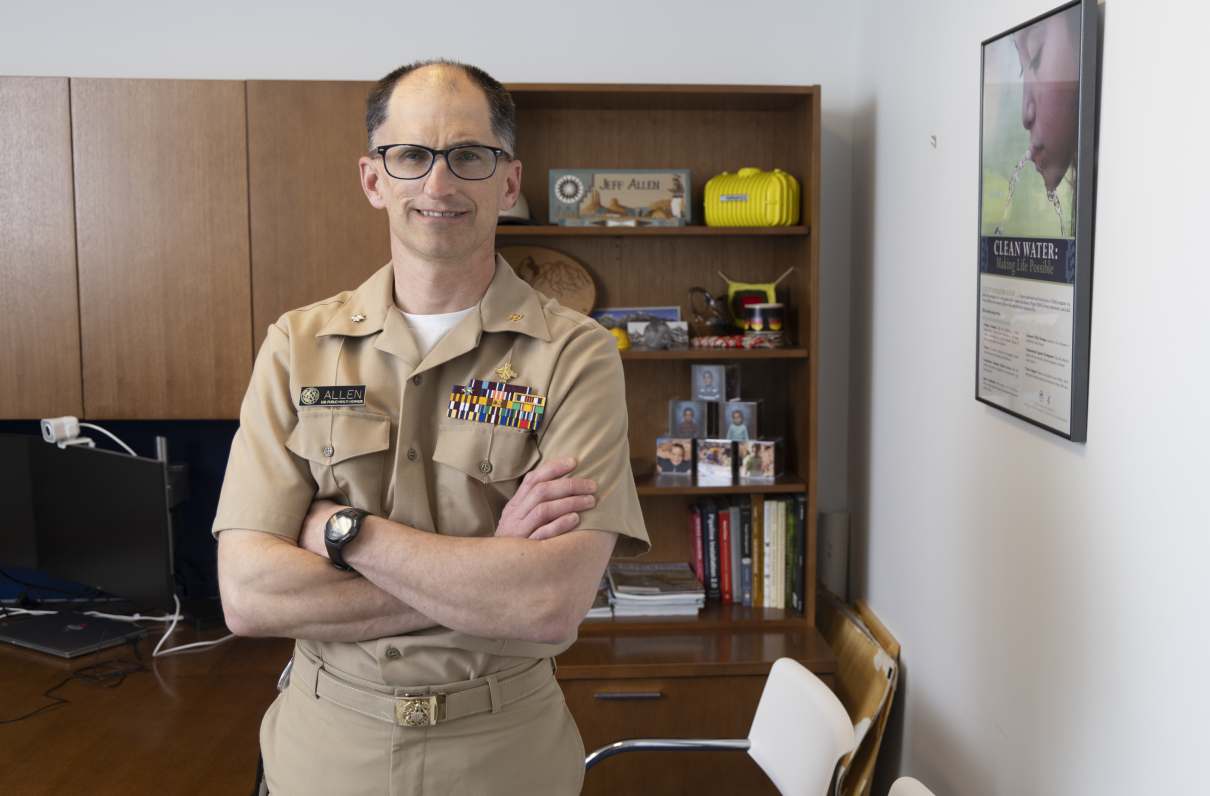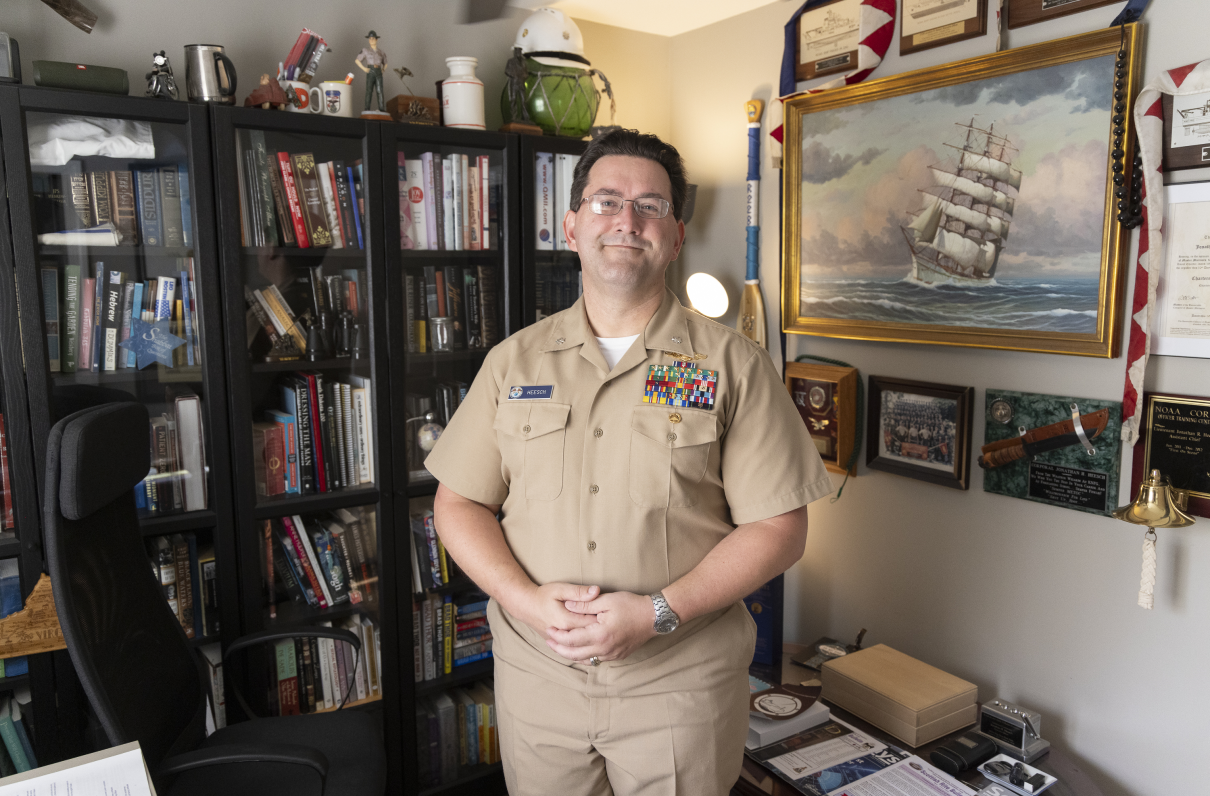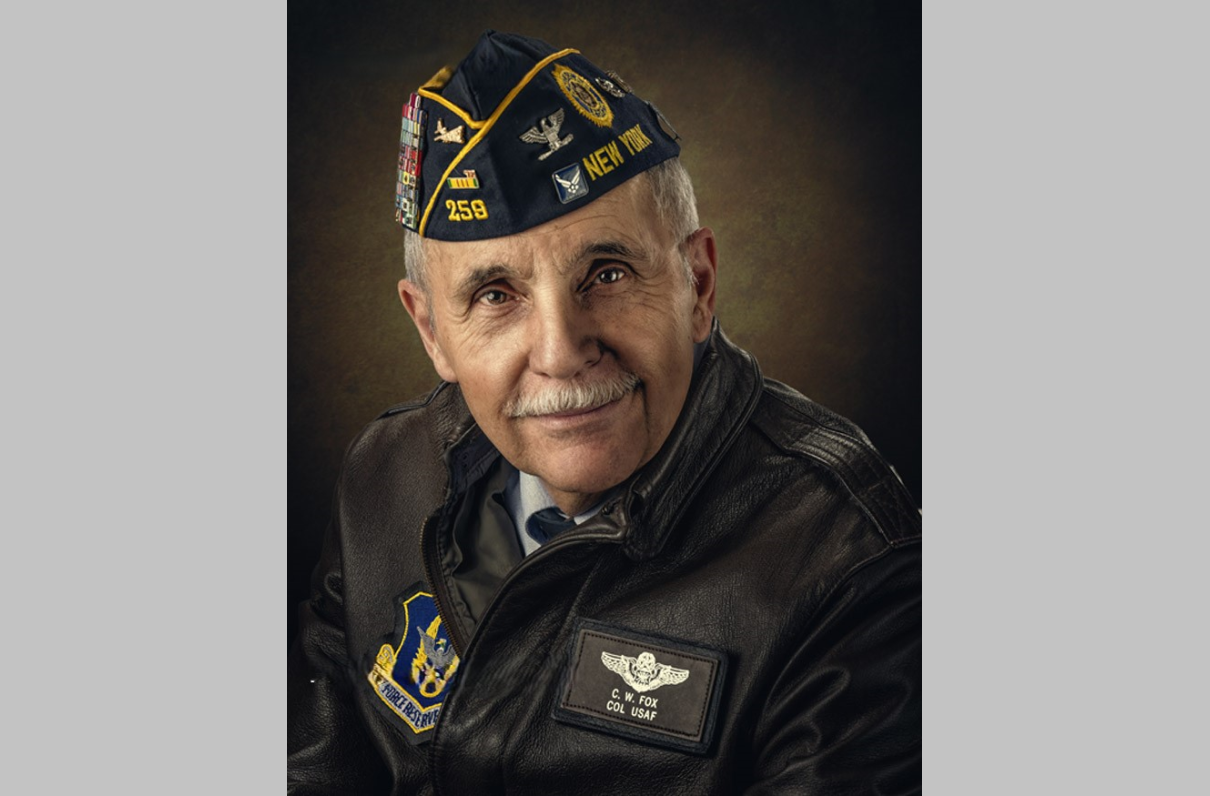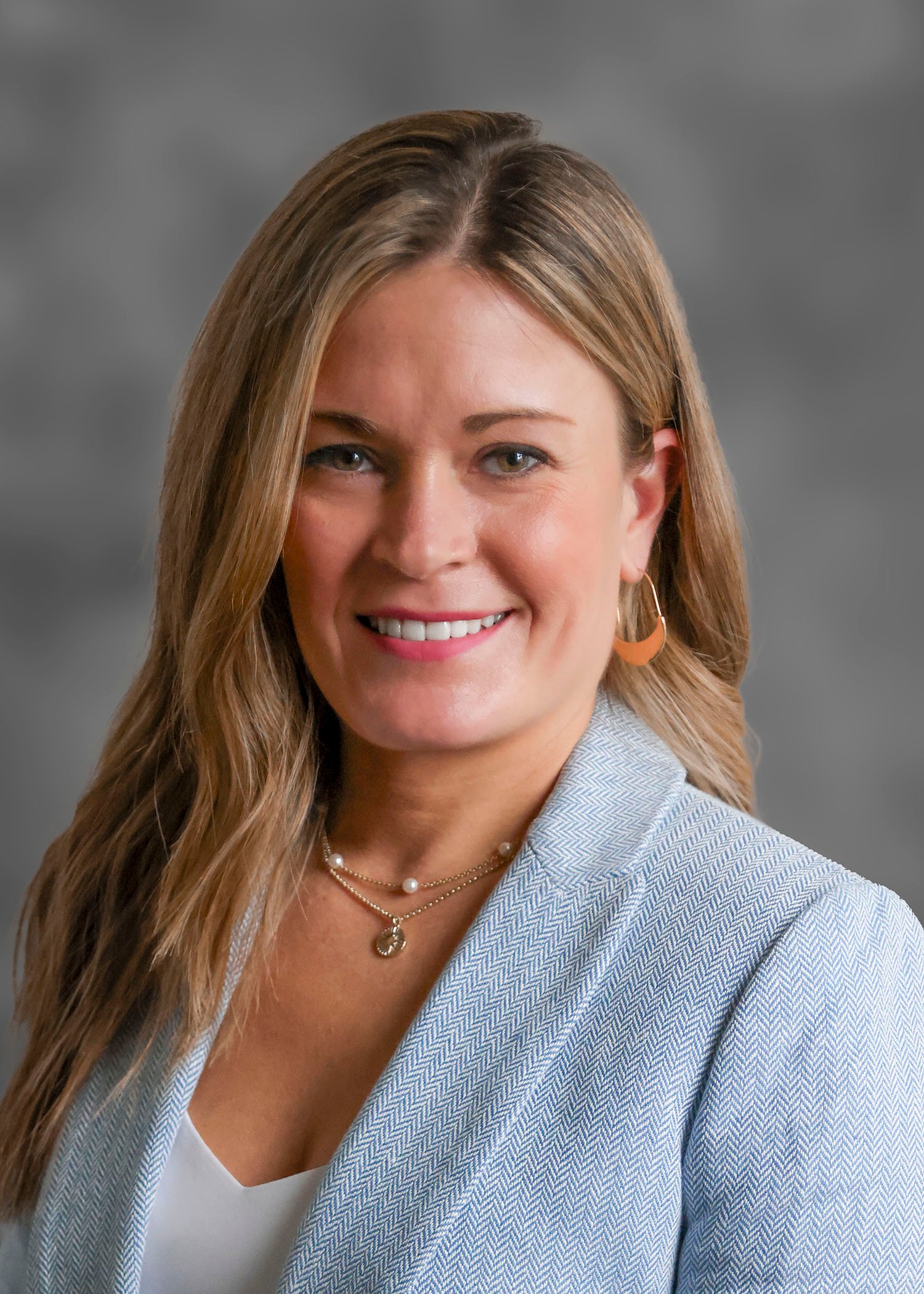Cmdr. Jeffrey Allen, USPHS, a Premium member of MOAA, wanted a career that would allow him to support a family. With his father serving a career as a U.S. Public Health Service engineer and his mother starting her career as a nurse in the Indian Health Service, Allen’s decision to follow a similar path was not surprising.
“I grew up admiring [my father’s] sharp uniform and his commitment to his work within the Indian Health Service,” he said. “And I recognized how my father’s service met the needs of supporting and providing for my family.”
A health challenge earlier in life also impacted his desire to serve.
“As a teenager, I received specialized cancer treatment at Lackland AFB in San Antonio,” he said. “There, my appreciation for the men and women of the uniformed services deepened.”
Allen studied civil engineering at Brigham Young University. During that time, he also completed a two-year mission for his church and received a temporary commission through the USPHS Junior Commissioned Officer Student Extern Program (JRCOSTEP), detailed to the Indian Health Service in Dallas. The following summer led to a second JRCOSTEP opportunity with the California Area Indian Health Service.
After earning in his bachelor’s degree in 2002, he was commissioned as a lieutenant junior grade in the U.S. Public Health Service, once again duty stationed with the California Area Indian Health Service as a health facilities engineer.
[RELATED: Q&A: Public Health Service Leaders Talk Emerging Missions, Budget Challenges]
One of his early assignments took him to Grand Teton National Park, where he lived at the base of the Teton range.
“In that unique setting of iconic mountains, the Snake River, and incredible wildlife, I was able to advance my capabilities as an engineer in a way that would benefit me in future assignments,” he said.
Following that assignment, he took a position to work with the Navajo Area Indian Health Service, duty stationed in the same community his family lived in when he was born.
“My father had served there in a capacity similar to that which I was coming to fill,” Allen said. “Several times, I discovered I was expanding services off water or sewer systems that my father had worked on. Linking my work to his is a source of great pride.”
He said his service has not been without its challenges, but “keeping a service-oriented mindset” has helped him through those difficult times.
“Sometimes where our service is needed most are in locations that, on the surface, pose significant challenges for officers, especially living and serving in remote, isolated duty stations. However, I have found that the satisfaction of serving in those locations when we jump in and give it our all far outweighs all those challenges. The support and commitment of my family willingly moving to such locations is priceless.”
Today, he serves as an assistant director of the Division of Sanitation Facilities Construction at the Indian Health Service headquarters in Rockville, Md., leading projects that aim to resolve sanitation deficiencies in American Indian and Alaska Native homes and communities.
He considers his service to the nation “one of the great honors of life.”
“I truly believe that when you are in the service of others, you are in the service of your God," he said. "Doing so enriches your life, blesses others, and generates rich satisfaction that you have done your part to make the world a better place.”
Want to Help Servicemembers in Your Community?
Learn how you can make a difference with your local chapter.



